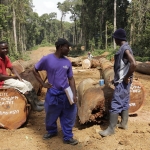JAPAN: Snow Brand Inc. Merges with Nestle After Food-Poisoning Outbreak
TOKYO -- The dairy company at the centre of Japan's biggest ever food-poisoning outbreak said Tuesday it was tying up with Swiss giant Nestle, as it unveiled big job cuts in a bid to repair the financial damage.
Famous sports clubs owned by Snow Brand Milk Products Co. Ltd. will also be
axed as part of a reconstruction program, under which 1,300 jobs would go to cut the workforce to 5,500 by March 2003.
In an attempt to restore battered consumer confidence, Snow Brand said it
was joining forces in product development and marketing with Nestle Japan Ltd.
"We have been tossing the idea around for some time. We have been partners
in selling pasta in Japan," Snow Brand president Kouhei Nishi told a news conference.
"But this (food poisoning) incident accelerated the talks," he said. "Our
brand name has been damaged beyond all expectation."
Snow Brand hoped to gain from Nestle "know-how on all parts of production,
including product management, hygiene management and quality management," the president added.
Concrete details of the business alliance will be decided by the end of the
year.
But it will not involve any equity tie-up or exchanges of personnel, said
Nestle Japan president Wolfgang Reichenberger.
"We want to give trust to both of our brands with strong programs of
marketing and innovation," he told the news conference.
The companies will work together in yoghurt, frozen desserts and ice cream,
all markets peripheral to Snow Brand's main business of selling milk.
That has slumped as consumers boycott Snow Brand products following the
food-poisoning outbreak in late June, which made more than 14,000 people ill around the western city of Osaka.
According to revised earnings forecasts for the year to March 2001, Snow Brand expects to fall into the red for the first time since it was founded in 1950.
Snow Brand said it expected to post a group net loss of 47.5 billion yen
(441 million dollars) for the current year, reversing its earlier estimate of a nine-billion-yen net profit.
Group sales are projected at 1,155 billion yen, down from an earlier estimate of 1,320 billion yen and last financial year's 1,264 billion yen.
"We have resumed retailing but a full recovery is far away," Snow Brand
acknowledged in a statement.
Executives' salaries will be slashed by 30 percent and winter bonuses for
all employees will be cut 40 percent, the statement said. The job cuts will come through natural wastage.
Snow Brand will also sell off real estate and reorganise overseas affiliates.
The mass poisoning outbreak was caused by bacteria-ridden Snow Brand milk
which was produced in unhygienic conditions, forcing plants in Osaka and elsewhere around Japan to shut.
The halt to milk production cost Snow Brand 750 million yen a day.
Japanese police raided Snow Brand's Tokyo headquarters in late August in
connection with the scandal, which forced Nishi's predecessor as president and seven other executives to resign.
Under the reform plan, Snow Brand will close its 36-strong ice hockey team after this season. The team, including Canadian players, ended fifth last season in the Japan Hockey League.
Snow Brand's athletic club will also be shut but its famous skiing team including Olympic ski-jumping gold medallist Masahiko Harada will be retained.
Many professional sports clubs in Japan are owned by corporations.
- 181 Food and Agriculture



